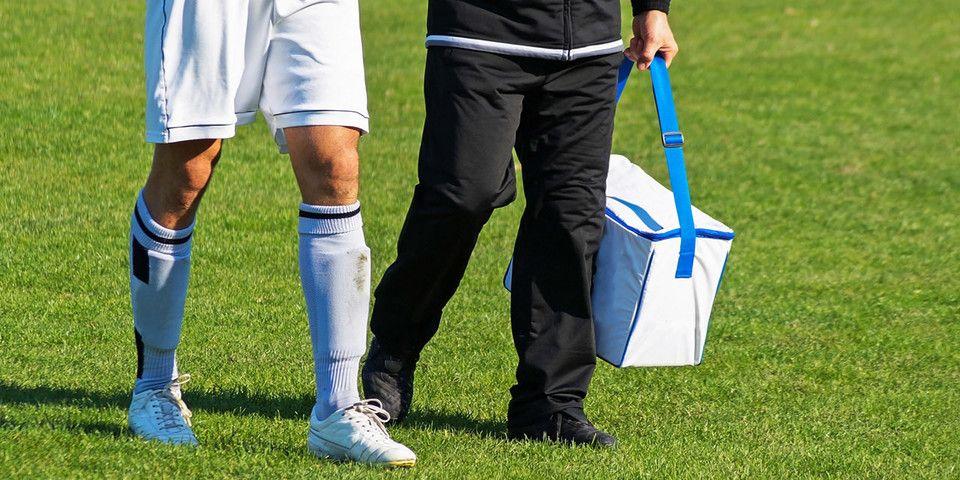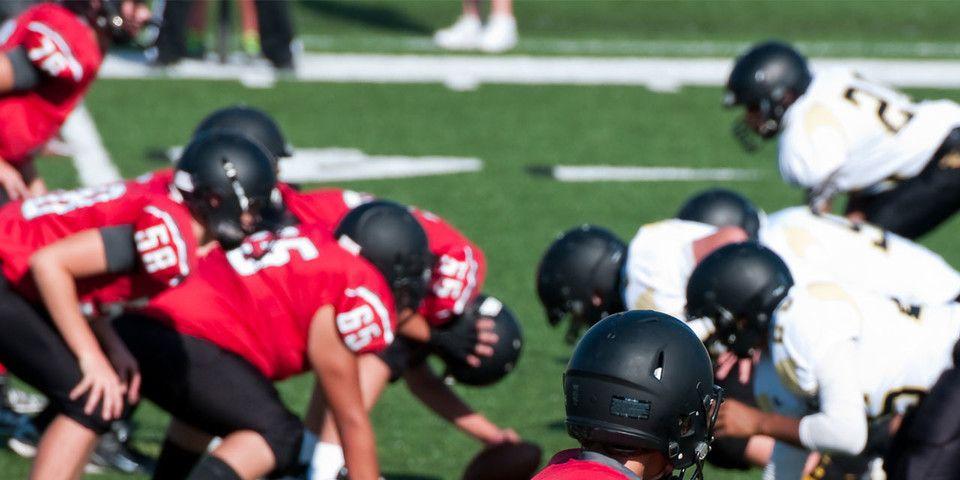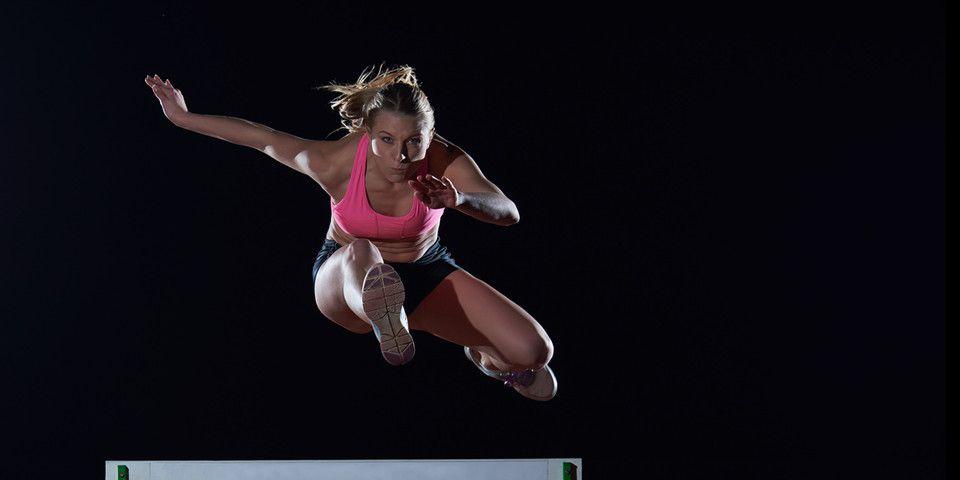Getting Serious About Sports-Related Heat Exhaustion in Fall Athletes
Sports medicine specialists at Rothman Orthopaedic Institute are committed to helping local athletes stay safe during preseason and avoid heat related illness, such as heat exhaustion.
We think of watching football and soccer in the cool, crisp fall air, but for the athletes who play those sports, the training and the hard work begins in the middle of the heat of summer. And this year, the heat just happens to be, for lack of a better word, hotter.
The National Weather Service is warning the residents of southeastern PA about the intense heat wave that has been in effect since last week and will continue through the next couple of days, bringing with it excessive heat index levels.
Especially during the afternoon and early evening hours, which is when many athletes are out practicing, the intense heat will present an increased risk for health issues, such as sports-related heat exhaustion.
Athletes need to empower themselves with some basic information concerning this heat-related illness. In addition, coaches at all levels and the parents of young athletes must also be informed if the risk for heat exhaustion among athletes is going to be minimized during this heat wave.
Sports-Related Heat Exhaustion: What is it?
Heat exhaustion is considered a moderate heat illness that usually occurs in conjunction with a more minimal condition, such as dehydration. For example, exhaustion can set in when an athlete continues to be physically active after he or she is already suffering from dehydration.
Remember: dehydration occurs whenever an individual loses too much bodily fluid (in an athlete’s case, from sweating) and does not replenish that fluid quickly enough.
When sports-related heat exhaustion sets in, the athlete’s body is basically struggling to keep up with the physical demands of continued high intensity activity without the necessary fluids. This can become a critical issue for players who are out in extreme heat and who are not attentive to the symptoms of this condition.
Be Aware of the Signs and Symptoms
Besides the signs related to dehydration, the following are a list of symptoms that are often exhibited in athletes, who are also suffering from the escalated condition of heat exhaustion:
-
Athlete feels physically unable to continue playing
-
Loss of coordination, dizziness or fainting
-
Pale skin, associated with heavy sweating
-
Headache
-
Nausea, vomiting, and/or diarrhea
-
Stomach cramps
-
Persistent muscle cramps
Addressing Sports-Related Heat Exhaustion: 6 Steps for Treatment
If a certified athletic trainer (ATC) is on site to monitor the health and safety of athletes during preseason activity, he or she will know how to identify and handle cases involving heat exhaustion. While it is strongly recommended to always have an ATC present, it is also essential that coaches and parents have an awareness of how to address this issue.
Here are some simple, but effective measures that should immediately be taken when an athlete shows signs of heat exhaustion:
-
Help the athlete move to a shaded or air-conditioned area.
-
Remove any extra clothing and equipment to allow the body to cool down as much as possible.
-
Begin to cool the player down by providing cold water to drink, cold towels to place on their head and neck, or by directing a fan at them.
-
Encourage the athlete to lie down in a comfortable position with their legs raised above heart level.
-
Offer a sports drink, which can help replenish lost fluids and sodium (this is not a good option if the player is vomiting).
-
Expect rapid improvement in the athlete’s condition. If you observe little to no improvement, it is time to call 9-1-1.
Tips for Fall Athletes: Preventing & Managing Heat Exhaustion
Because it is always better if an athlete never has to deal with a heat-related illness in the first place, let’s start with some tips for prevention:
-
Always warm up properly, allowing your body time to gradually become accustomed to the heat.
-
Take frequent breaks during training sessions to drink either water or sports drinks.
-
Keep an eye on your body weight during preseason practices. If you are losing weight during sessions, you are not drinking enough!
-
Wear minimal, lightweight clothing to allow your body to release heat efficiently.
-
Remember that proper hydration begins long before you step on the field. Drink plenty of water throughout the day - even when you are not out practicing or playing.
-
Be aware of the symptoms of dehydration. If you sense that you may be dehydrated, take a break and address that condition before it becomes a more severe issue, such as sports-related heat exhaustion.
Now, let’s discuss what to do if/when you have already suffered from an episode of heat exhaustion:
-
Do not return to regular play until all of your symptoms are gone. Check with an ATC about when would be a proper time to jump back into activity and plan to do so at a conservative pace at first.
-
If the heat exhaustion was so severe that you required emergency medical treatment, do not return to play until your doctor has cleared you. Be sure to follow all instructions your physician provides in terms of how to ease back into a healthy activity level.
-
If you experience more than one occurrence of heat exhaustion, talk to your doctor about ruling out other conditions that may be contributing to this issue. Talk about your diet, rest and general physical health to ensure that you are not missing an underlying cause.
While it is an athlete’s own responsibility to maintain proper hydration, coaches and parents also play an important role in helping players avoid sports-related heat exhaustion. Stay aware of the symptoms, be ready to implement the six steps for treatment, and remember that if you are concerned about a player’s health during this extreme heat wave, the sports medicine team at Rothman Orthopaedic Institute is available to help!
For more information, please visit us here or contact us at 1-800-321-9999.
Author
Related Physicians
- All Specialties
- Hip
- Knee
- Spine
- Sports Medicine
- Shoulder & Elbow
- Foot & Ankle
- Hand & Wrist
- Physical Medicine & Rehabilitation
- Orthopaedic Oncology
- Orthopaedic Trauma & Fracture Care
- General Orthopaedics
Physician Language
- All Languages
- English
- Persian
- Spanish
- Italian
- Chinese
- German
- Tamil
- Turkish
- Taiwanese
- Mandarin
- Hindi
- Punjabi
- Korean
- Gujarati
- Arabic
- Telugu
- Vietnamese
- Swedish
Filter Physicians
Search
Specialties
- All Specialties
- Hip
- Knee
- Spine
- Sports Medicine
- Shoulder & Elbow
- Foot & Ankle
- Hand & Wrist
- Physical Medicine & Rehabilitation
- Orthopaedic Oncology
- Orthopaedic Trauma & Fracture Care
- General Orthopaedics
Physician Language
- All Languages
- English
- Persian
- Spanish
- Italian
- Chinese
- German
- Tamil
- Turkish
- Taiwanese
- Mandarin
- Hindi
- Punjabi
- Korean
- Gujarati
- Arabic
- Telugu
- Vietnamese
- Swedish
Please select your region to view available physicians.
Select Your Region- All Locations
- {{item.title}} {{distanceText(item)}}
Sort
Related Specialties
Related Programs
-

Athletic Training- Sport Medicine Outreach
Our Field Athletic Trainers provide direct sports medicine care to youth, high school, college and professional athletes. Rothman AT’s provide athletic training services throughout Southeastern PA to interscholastic high schools, colleges, as well as tournaments and special events.Read More -

Injury Prevention Program
The Injury Prevention Program at the Rothman Orthopaedic Institute is dedicated to the prevention of injuries from athletic participation, particularly youth sports.Read More -

Women’s Sports Medicine Program
The Women’s Sports Medicine Program at the Rothman Orthopaedic Institute is the first of its kind in the Philadelphia metro area and one of only several such programs specializing in the comprehensive care of the female athlete in the country.Read More




